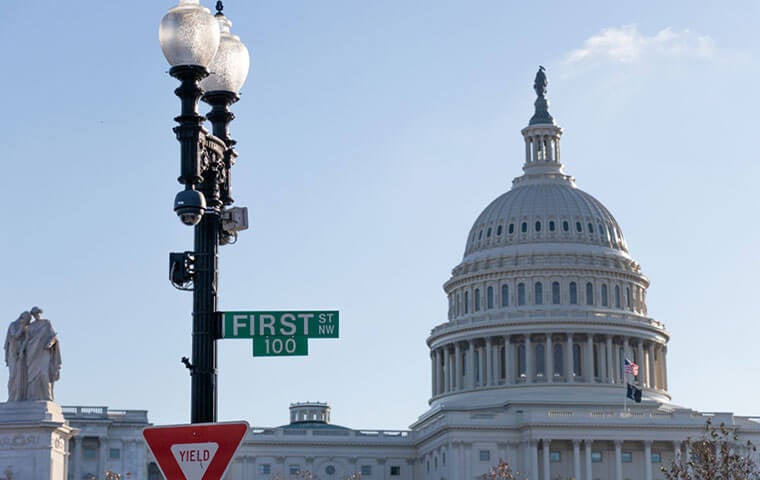 Current rules blocking Schedule F could be overturned by the new administration, possibly by first suspending them and then going through the formal process of taking them off the books. Image: The Bold Bureau/Shutterstock.com
By: FEDweek Staff
Current rules blocking Schedule F could be overturned by the new administration, possibly by first suspending them and then going through the formal process of taking them off the books. Image: The Bold Bureau/Shutterstock.com
By: FEDweek StaffHouse and Senate negotiators have prepared for final voting the annual DoD authorization bill, containing no language to prevent the return of a Schedule F in the second Trump administration.
That bill, one of the few annual “must-pass” measures, was considered the last, best chance for the current Congress and White House to put such a ban into law, an action that would have required enacting a new law to override it.
Supporters hoped to add a ban as an amendment to the DoD bill and having the House accept it as part of a larger compromise on the bill – but the Senate never brought its version of the measure to a floor vote where such an amendment could have been offered.
Overriding a ban would have been difficult to get through the new Congress even with Republicans controlling the Senate, since Democrats will have enough votes to block measures through the filibuster. However, putting a ban in law likewise has been an uphill struggle with Republicans in control of the House for the last two years, after Senate Republicans blocked such efforts in the prior Congress when Democrats controlled both chambers.
The Biden administration has finalized regulations against a Schedule F by specifying that competitive service positions involved with making, advising or carrying out policy cannot be converted to the excepted service—and that any other positions that are converted would retain their competitive civil service rights.
Those rules however could be overturned by the new administration, possibly by first suspending them and then going through the formal process of taking them off the books—which could take a number of months.
Road Ahead
The exact sequence ahead remains unclear, though, leaving also unclear the potential effective date of a new Schedule F.
Also uncertain is how many jobs stand to be converted to the excepted service under a reprise; former officials of the first Trump administration estimated 50,000, but federal employee organizations—who almost certainly will challenge a new directive in court—say the figure could be far higher.
Buyouts
The DoD bill meanwhile drops language that had been in the Senate committee-passed version to set the buyout maximum at that department at $40,000, compared to the $25,000 current government-wide figure.
The higher figure had been in effect for several years during the Obama administration, approved on grounds that $25,000, in effect since the 1990s, is no longer a sufficient incentive.
However, the higher amount lapsed in 2021 and although the first Trump administration proposed to keep that figure, it did not press the issue in Congress.
DEI
The measure meanwhile does include language that was in slightly different form in both the House and Senate bills to prevent the DoD from creating any new positions with responsibility over DEI matters and from filling any vacancies that occur in such current positions.
The second Trump administration is widely expected to go farther, by abolishing internal government DEI programs, with the related positions also abolished.
Hiring and Leave
The bill also extends through 2033 a special hiring authority into civil service jobs for spouses of military personnel; continues several special pay authorities for federal employees working in danger areas overseas; and increases from 15 to 20 days annually the leave granted to federal employees for active military duty.
Shutdown Meter Ticking Up a Bit
Judge Backs Suit against Firings of Probationers, but Won’t Order Reinstatements
Focus Turns to Senate on Effort to Block Trump Order against Unions
TSP Adds Detail to Upcoming Roth Conversion Feature
White House to Issue Rules on RIF, Disciplinary Policy Changes
Hill Dems Question OPM on PSHB Program After IG Slams Readiness
See also,
How Do Age and Years of Service Impact My Federal Retirement
The Best Ages for Federal Employees to Retire

